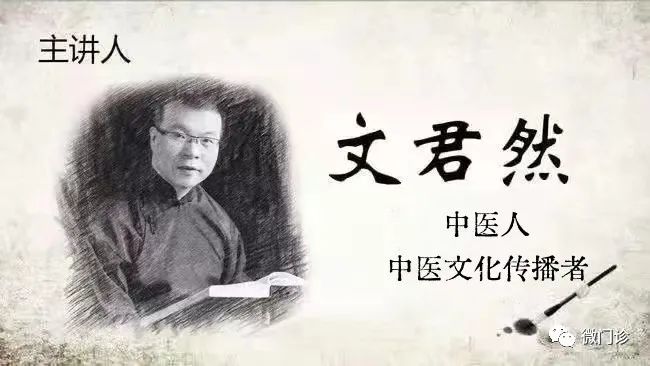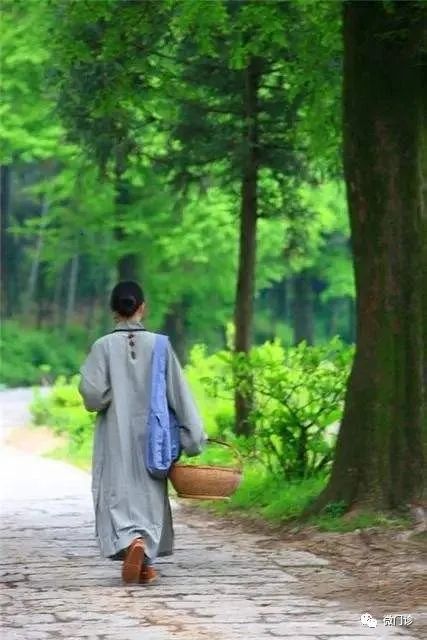Morning flowers and evening harvests, revisiting old matters. This is content that was pushed two days ago. Today, we review and learn anew.

(This article is for learning and reference only. The formulas mentioned should not be blindly attempted by non-professionals without guidance from a TCM practitioner.)
The theoretical basis of this article: “Shang Han Za Bing Lun Yan Jiu Da Cheng”, “Zhong Jing Fang Yao Gu Jin Ying Yong”, “Clinical Practical Formulas Dictionary”.
Hello, I am a TCM practitioner, Wen Junran.
In this article, I want to discuss a classical formula. It originates from the “Shang Han Lun” written about 1800 years ago. Although it seems ancient, it has significant relevance for modern people.
This is the Hou Po Sheng Jiang Ban Xia Gan Cao Ren Shen Tang (Magnolia Bark, Fresh Ginger, Pinellia, Licorice, and Ginseng Decoction). Its basic composition includes 250 grams of Hou Po (Magnolia Bark), 250 grams of Sheng Jiang (Fresh Ginger), 150 ml of Ban Xia (Pinellia), 60 grams of Gan Cao (Licorice), and 30 grams of Ren Shen (Ginseng), boiled in water for consumption.
Professor Chen Renshou, director of the Literature Research Institute of Nanjing University of Chinese Medicine, has converted this formula into modern dosages, which are approximately 24 grams of Hou Po, 24 grams of Sheng Jiang, 24 grams of Ban Xia, 6 grams of Gan Cao, and 3 grams of Ren Shen.
Alright, let’s not get too technical for now. Let’s look at the following story.

Once, there was a 45-year-old man who was a farmer.
Not long ago, due to family trivial matters, he had a quarrel with his wife, and they both refused to give in.
As a husband, he was quite upset, so he remained gloomy all day.
Gradually, he began to feel unusual symptoms, including chest tightness, abdominal distension, and a feeling of fullness in the entire abdomen, accompanied by frequent bowel sounds, loss of appetite, and belching.
Feeling uncomfortable, he went to the hospital. The hospital conducted examinations and found no significant issues, not even superficial gastritis.
Thus, the doctor diagnosed him with digestive dysfunction and prescribed some medication, after which the patient returned home.
Of course, the treatment was not very effective.
So, this patient sought TCM treatment.
The physician examined him carefully and found that the patient had a dark tongue with a white coating, and the pulse was slightly wiry, especially on the left side.
After understanding the background and the patient’s symptoms, the physician prescribed a formula: 15 grams of Dang Shen (Codonopsis), 15 grams of Hou Po, 12 grams of Sheng Jiang, 6 grams of Gan Cao, 12 grams of Ban Xia, 15 grams of Fo Shou (Buddha’s Hand), and 6 grams of Dai Zhe Shi (Hematite).
All these were to be boiled in water for 5 doses.
What was the result? After taking the medicine, the patient was surprised to find that all the feelings of fullness and discomfort had almost completely disappeared, and his mood improved with an increase in appetite.
The physician advised him to grind the above herbs into a coarse powder, taking 10 to 15 grams each time, brewed as tea, twice daily.
Thus, the patient continued this for another two months. Upon follow-up, all symptoms had resolved, and he was completely well.

This case was published in 1991 in “Heilongjiang Journal of Traditional Chinese Medicine”.
Now, let’s briefly analyze this patient.
At the onset of his illness, he had quarreled with his wife. Upon examination, his pulse was wiry. The left guan position indicated liver involvement, with a wiry pulse reflecting liver qi stagnation. Therefore, his condition was due to emotional distress leading to liver qi stagnation.
The liver belongs to wood, while the spleen belongs to earth. When the liver qi is obstructed, it can harm the spleen, leading to spleen deficiency and dysfunction. The spleen loses its normal function of transformation and transportation, resulting in loss of appetite and loose stools.
With spleen and stomach weakness, the central qi’s rising and descending functions become abnormal, compounded by liver qi stagnation, leading to abdominal distension, gastric distension, and chest tightness.
All these can be summarized in four words: Spleen Qi Deficiency and Qi Stagnation. Of course, based on symptoms, qi stagnation is the primary issue, while spleen deficiency is secondary.
What to do? To address spleen deficiency, we tonify the spleen; to resolve qi stagnation, we move qi; and to soothe liver qi, we disperse it.
Now, let’s look at the combination used by the physician:
15 grams of Dang Shen, 15 grams of Hou Po, 12 grams of Sheng Jiang, 6 grams of Gan Cao, 12 grams of Ban Xia, 15 grams of Fo Shou, and 6 grams of Dai Zhe Shi.
Dang Shen and Gan Cao tonify the spleen and benefit qi. Hou Po, Ban Xia, and Sheng Jiang move stomach qi and relieve distension. Fo Shou soothes the liver and regulates qi. Dai Zhe Shi descends rebellious qi and stops vomiting and belching.
See, a simple combination of seven herbs solved the problem.
Now, please note that among these, Dang Shen, Hou Po, Sheng Jiang, Gan Cao, and Ban Xia are the very ingredients of the Hou Po Sheng Jiang Ban Xia Gan Cao Ren Shen Tang we mentioned at the beginning. The only difference is that Ren Shen (Ginseng) was replaced with the more affordable Dang Shen.
It should be noted that the treatment method in this case is based on the Hou Po Sheng Jiang Ban Xia Gan Cao Ren Shen Tang.
In fact, the efficacy of this formula is twofold: it tonifies the spleen and moves qi. The conditions treated are spleen qi deficiency and qi stagnation. Ren Shen and Gan Cao address spleen deficiency, while Hou Po, Sheng Jiang, and Ban Xia move qi stagnation. Its origin also traces back to the clinical insights of the medical sage Zhang Zhongjing 1800 years ago.
Originally, Zhang Zhongjing discovered that many people developed abdominal distension after using sweating methods to treat exogenous cold. Why is this so? Zhang Zhongjing did not specify, but later physicians generally believed it was due to sweating affecting the spleen. Whether this is true or not, we cannot conclude definitively.
However, Zhang Zhongjing clearly recognized the immediate issue of the patients, which was spleen deficiency combined with qi stagnation. Thus, he employed methods to tonify spleen deficiency and move qi stagnation, creating the Hou Po Sheng Jiang Ban Xia Gan Cao Ren Shen Tang. Therefore, this is a traditional formula for improving spleen qi deficiency and qi stagnation.

Dear readers, do not underestimate it. Its practical clinical applications are numerous. For example, chronic gastritis, chronic atrophic gastritis, pregnancy-related nausea, postoperative abdominal distension, and digestive dysfunction can all present with spleen qi deficiency and qi stagnation. TCM uses this formula to treat these conditions with good results.
The most typical case is from the esteemed elder Yue Meizhong. Once, he treated a patient with abdominal distension and discomfort day and night, diagnosed as spleen qi deficiency and qi stagnation. At that time, Elder Yue used 12 grams of Hou Po, 9 grams of Sheng Jiang, 9 grams of Ban Xia, 6 grams of roasted Gan Cao, and 4.5 grams of Dang Shen, boiled in water for treatment. After just one follow-up visit, without changing the formula, the patient recovered. This shows how effective the Hou Po Sheng Jiang Ban Xia Gan Cao Ren Shen Tang is.
For modern people, digestive dysfunction and post-meal abdominal distension due to spleen qi deficiency and qi stagnation are very common. The Hou Po Sheng Jiang Ban Xia Gan Cao Ren Shen Tang, along with the aforementioned methods, undoubtedly provides us with excellent treatment strategies. This can be considered a gift left to us by the medical sage Zhang Zhongjing 1800 years ago. We should study and understand it well.
Of course, regarding its application, non-professionals should conduct careful differentiation. Abdominal distension and gastric distension are common symptoms with many causes, not all of which are due to spleen qi deficiency and qi stagnation. Using this formula for conditions outside of this pattern would be inappropriate.
Alright, that’s all I have to say about this matter. Thank you for reading.

